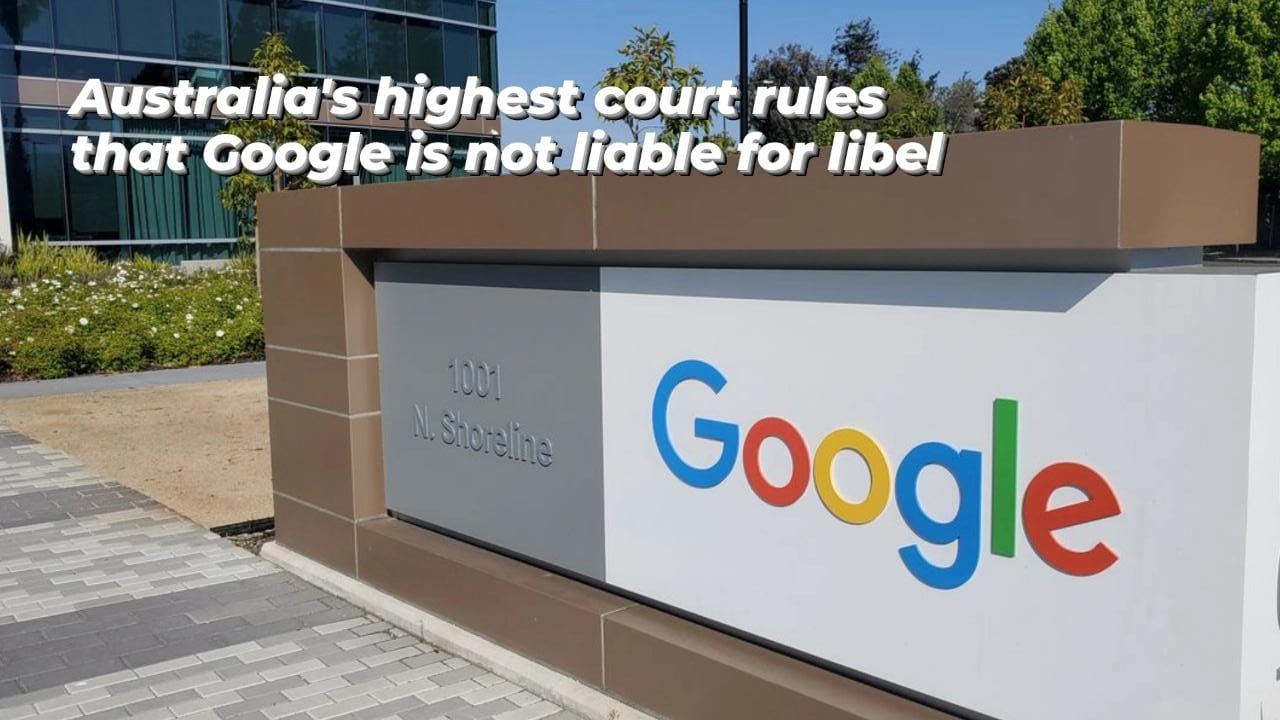
Wednesday’s decision by Australia’s top court to reject a finding that Google had violated the law by providing a link to a disputed newspaper article has once again brought attention to the country’s procedures for handling internet libel cases.
In a 5-2 decision, the High Court of Australia’s seven-judge panel overturned an earlier ruling that the website had an active involvement in publishing the disputed piece by serving as a ‘library’ for it.
Where responsibility for internet defamation lies in Australia has long been a subject of debate, but the ruling has just added to the complexity. Large platforms like Google and Facebook, which is owned by Meta Platforms, have been under examination for years in order to determine whether they should be held accountable for libel.
According to the judgement that was published, the case originated from a 2004 article that claimed a criminal defence attorney had crossed ethical boundaries and become a ‘confidant’ of criminals. According to the ruling, the attorney, George Defteros, discovered a connection to the story in a 2016 Google search of his name and requested that Google remove it after it had been viewed by 150 people.
In a state court proceeding, Defteros sued Google, which the court ruled to be a publisher and ordered to pay him A$40,000 ($28,056). Google filed an appeal against the ruling, which resulted in Wednesday’s decision.
In their decision on Wednesday, two of the panel’s judges stated that ‘The Underworld article was not created by any employee or agent of the appellant,’ which is Google.
It was published by an independent publication over which the appellant had no control or influence and was authored by a reporter with no relationship to the appellant.
They stated that ‘Google does not own or control the internet.”
A Google official was unavailable for comment right away.
In spite of the process being ‘long, drawn-out, expensive, and incredibly stressful,’ Defteros said in a statement that he felt vindicated because the court determined that the post was defamatory even if Google was not held accountable.
The decision follows the High Court’s finding that a newspaper publisher was responsible for the defamatory remarks made beneath an item that it had posted on Facebook last year.
The media companies last year ‘invited and promoted comment,’ whereas Google ‘did not create a forum or site where it might be expressed, nor did it encourage the writing of comment in response,’ the justices stated in their ruling on the 2021 Facebook case.

Post Your Comments